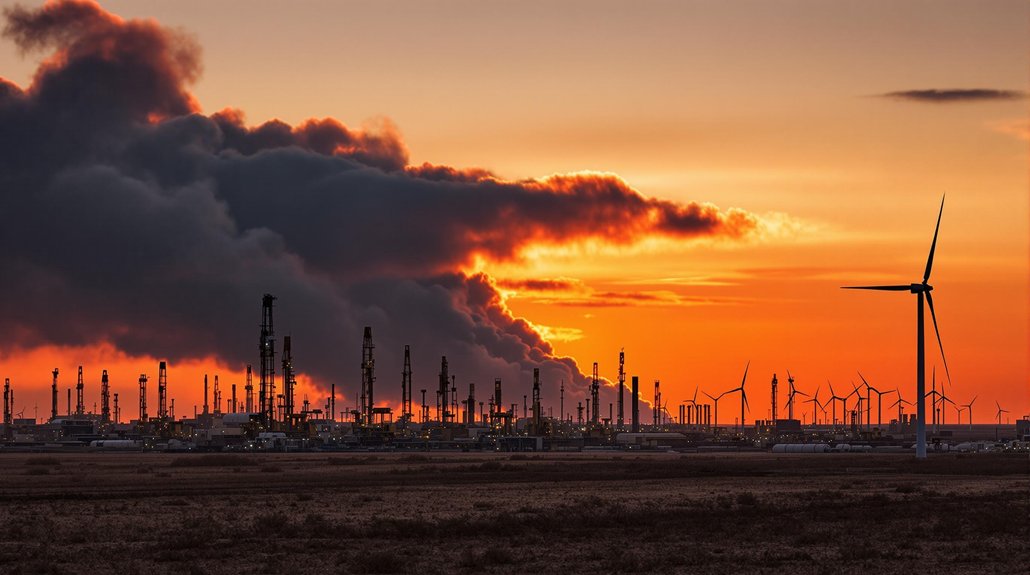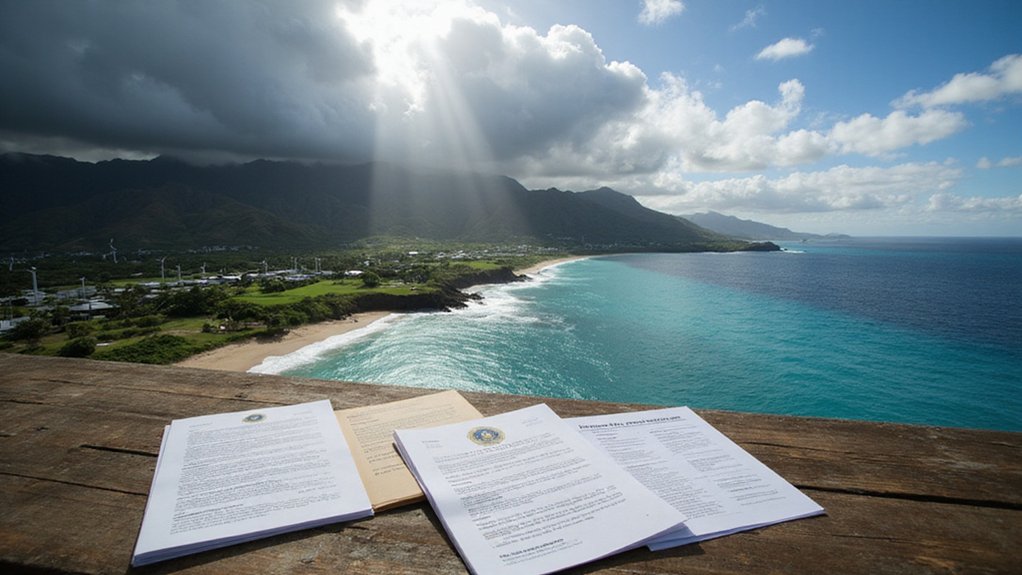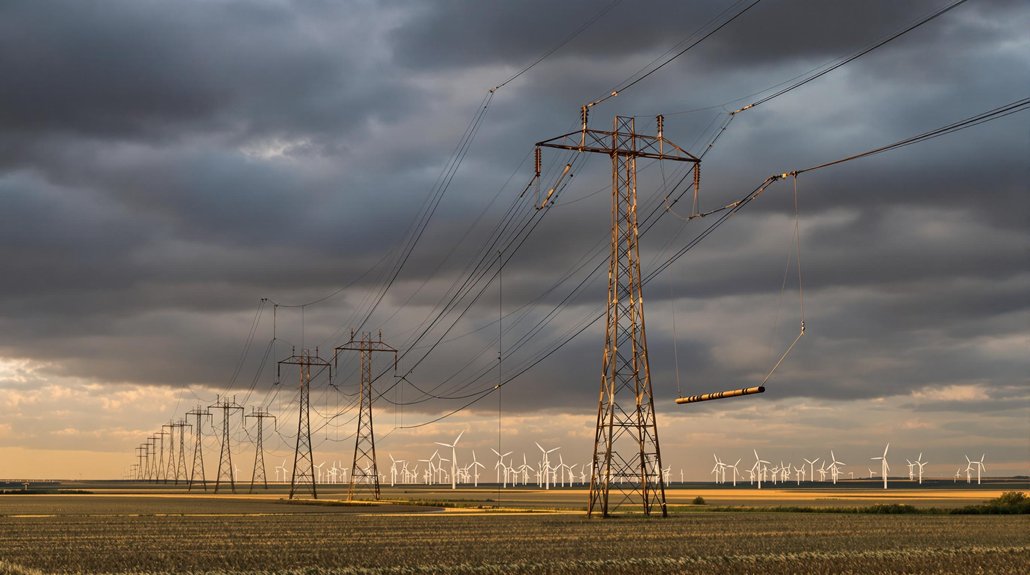Trump’s fossil fuel crusade threatens global climate efforts through multiple avenues. His planned Paris Agreement withdrawal, offshore drilling expansions, and nomination of fossil fuel advocate Chris Wright as Energy Secretary signal a dramatic policy shift. Methane emission rule relaxations and coal leasing on federal lands would increase carbon output. Dismantling renewable energy initiatives while prioritizing “energy dominance” could erase recent climate progress. The full environmental impact might be greater than initially apparent.
Since returning to the White House, President Trump has launched a sweeping campaign to expand fossil fuel production across America. His administration has approved major expansions of offshore drilling in the Gulf of Mexico and Arctic regions while relaxing methane emission rules to boost oil field output. The president also reversed bans on coal leasing on federal lands and made it easier to approve natural gas pipeline projects.
In January 2025, Trump withdrew the United States from the Paris Climate Agreement for the second time. He told the United Nations that America would focus on “energy dominance” instead of global climate efforts. This move has reduced U.S. involvement in international climate initiatives as the administration prioritizes economic growth over environmental concerns.
The Department of Energy has undergone major changes under Trump’s direction. The president nominated fossil fuel advocate Chris Wright as Energy Secretary and eliminated offices that supported renewable energy. The DOE now focuses more on increasing energy production than on regulating it. Many energy functions have been moved to a new “Department of Government Efficiency.” These changes contribute to the energy sector accounting for 75.7% of emissions globally, further exacerbating climate change.
Trump’s administration has also begun rolling back key climate policies. The Inflation Reduction Act and parts of the Infrastructure Investment and Jobs Act are being dismantled. References to climate change have been removed from government websites and policy frameworks. Federal agencies must now prioritize economic growth over environmental protection. Executive orders have forced a shift in language around environmental issues, requiring euphemisms instead of direct climate change terminology.
The transportation sector hasn’t escaped these changes. The administration is working to eliminate fuel efficiency standards for vehicles and what Trump calls the “electric vehicle mandate.” He’s considering taking away states’ rights to set their own emissions rules for gasoline vehicles. This rollback could lead to increased gasoline demand and higher emissions from vehicles across the country.
These policy shifts come as Trump cuts renewable energy subsidies and halts federal support for solar and wind projects. His team has reopened federal lands for drilling and eased restrictions on oil and gas companies, declaring that reliable fossil fuel energy is essential for national security.









